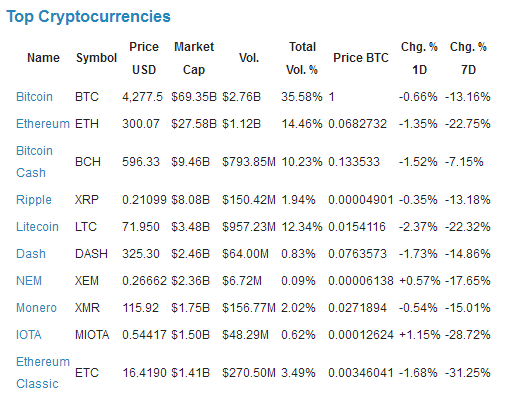The major U.S. indices closed out the abbreviated week on a mixed note as investors looked ahead to the weekend, which could see Hurricane Irma's arrival in Florida and another North Korean missile test in celebration of the country's 69th anniversary. The Dow ticked up 0.1% while the S&P 500 and the NASDAQ settled with losses of 0.2% and 0.6%, respectively. For the week, the S&P 500 lost 0.6%.
Property and casualty insurers bounced back on Friday after spending recent weeks on the decline in response to hurricane-related concerns. Travelers (TRV 119.76, +4.58) was the strongest component within the Dow and among the strongest names within the heavily-weighted financial sector, which settled at the top of the sector standings. TRV shares climbed 4.0%.
In total, four sectors finished Friday's session in the green--financials (+0.8%), industrials (+0.3%), health care (+0.4%), and utilities (+0.4%)--while seven groups ended the day in the red--consumer discretionary (-0.4%), energy (-1.1%), materials (unch), technology (-0.9%), consumer staples (-0.7%), telecom services (-0.1%), and real estate (unch).
Chipmakers weighed heavily on the technology sector, evidenced by the PHLX Semiconductor Index, which dropped 1.3%. Qualcomm (NASDAQ:QCOM 49.64, -0.74) lost 1.5% after a federal judged denied the company's bid to dismiss a patent-royalty lawsuit, allowing Apple (NASDAQ:AAPL 158.63, -2.63) manufacturers to continue withholding royalty payments as the case continues.
Elsewhere, retailers struggled after Target Corporation (NYSE:TGT) announced that it is cutting prices on thousands of items and Kroger (NYSE:KR 21.06, -1.71) said that it will stop providing long-term earnings guidance due to the "dynamic operating environment." The companies' shares moved lower by 2.0% and 7.5%, respectively.
Equifax (NYSE:EFX 123.23, -19.49) plunged 13.7% after announcing that around 143 million of its U.S. customers had their personal information stolen in a data hack. Reports indicate that the company first discovered the compromise in late July and three senior executives sold about $1.7 million in stock soon thereafter.
In Washington, the House passed President Trump's Wednesday agreement with Democratic lawmakers, which packages Hurricane Harvey relief funding with a three-month extension of both government funding and the debt ceiling. The bill, which passed the Senate on Thursday, now just needs President Trump's signature.
U.S. Treasuries settled Friday mostly flat with the benchmark 10-Year yield closing at its unchanged mark (2.06%). Meanwhile, the 2-Year yield moved two basis points lower, finishing at 1.25%.
Reviewing Friday's economic data, which included July Wholesale Inventories and July Consumer Credit:
July Wholesale Inventories increased 0.6% (Briefing.com consensus +0.4%). The prior month's reading was revised to +0.6% from +0.7%. The Consumer Credit report for July showed an increase of $18.5 billion while the Briefing.com consensus expected growth of $15.0 billion.
The prior month's credit growth was revised to $11.9 billion from $12.4 billion. Provided consumers weren't making greater use of revolving credit lines to cover basic needs due to a shortfall in income, this report can ostensibly be looked upon as a good sign for the economy since the expansion of credit is an integral contributor to economic growth. It is hard to say, though, because there isn't enough detail in the report and it is often subject to large revisions, which is why the market rarely shows much reaction to it.
Investors will not receive any economic data on Monday.

